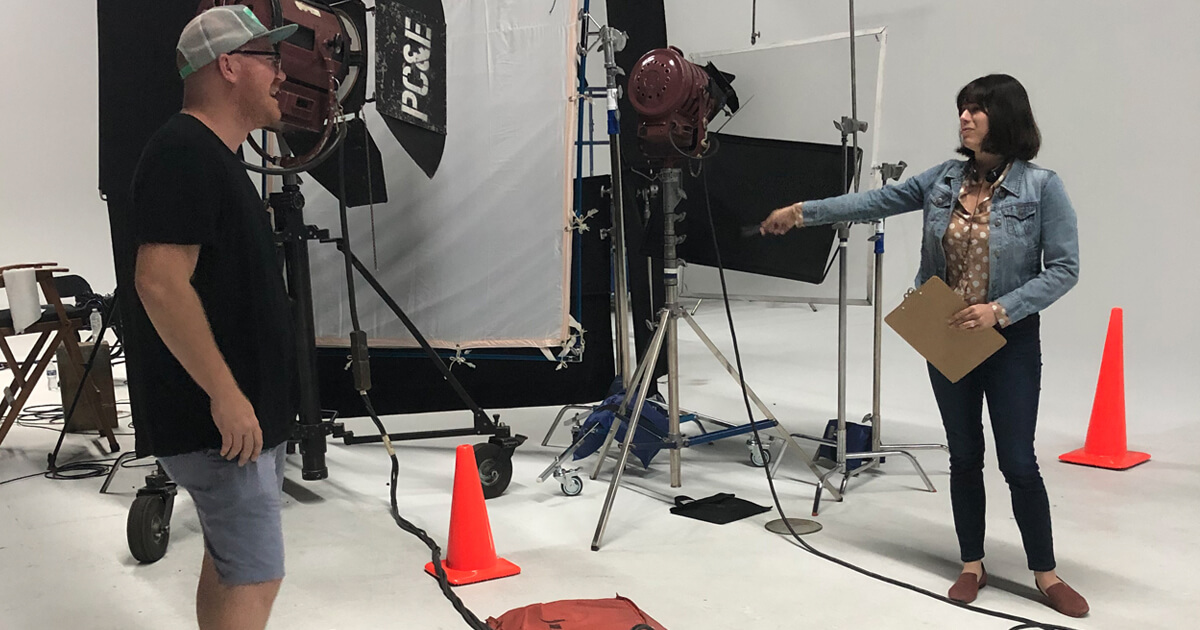How Event Production Functions: A Comprehensive Consider the Process
Event production is a complicated and structured process that requires cautious planning and implementation. It begins with establishing clear goals and comprehending the target market. Each action, from budgeting to venue option, plays a crucial role in guaranteeing success. As the procedure unravels, different aspects need to line up effortlessly. Yet, the subtleties of this complex procedure often go unnoticed. What are the crucial stages that contribute to a remarkable event?

The Initial Drawing Board
When starting on event production, careful planning is important to ensure an effective outcome. The first preparation stage functions as the structure for all succeeding efforts. During this phase, event manufacturers must define the event's purpose and objectives plainly. Determining the target audience helps tailor the experience and messaging, guaranteeing significance and engagement.Producers must additionally consider the event style, whether it be in-person, virtual, or crossbreed, as this will certainly affect various logistical components. Picking a suitable day and venue is essential, as it influences ease of access and availability.Furthermore, assembling a reputable group is fundamental for separating obligations and enhancing communication. Establishing a timeline with turning points assurances all jobs are completed on time. This phase entails thorough research, consisting of determining possible difficulties and developing approaches to minimize threats. Ultimately, a well-structured first preparation phase sets the tone for a successful event production trip.

Budgeting and Source Allocation
In event production, reliable budgeting and source allowance are critical for success - event production charlotte. Developing economic criteria sets the structure for all succeeding choices, while resource circulation strategies guarantee that every element of the event is effectively supported. Together, these elements help preserve control over expenses and maximize making use of offered resources
Developing Financial Parameters
Developing financial parameters is important to the success of any kind of event production, as it sets the structure for efficient budgeting and source allowance. This procedure starts with defining the general spending plan, which encompasses all elements of the event, including location costs, food catering, and marketing. By recognizing offered funds, event planners can prioritize expenditures and assign sources appropriately. On top of that, it is vital to carry out comprehensive market research to expect possible expenses and identify financing resources, such as sponsorships or ticket sales. Developing clear financial specifications also aids in danger monitoring, allowing planners to allot contingency funds for unanticipated costs. Eventually, a well-defined budget plan acts as a roadmap, directing the event production team in the direction of attaining their objectives while keeping monetary control.
Source Distribution Approaches
Effective source distribution methods are essential for making the most of the impact of an event while sticking to budget restrictions. Successful event production calls for a meticulous technique to budgeting and source allowance. Coordinators need to focus on vital components such as venue, wedding catering, and modern technology, ensuring that funds are allocated to locations that enhance guest experience. A detailed budget plan must detail anticipated costs and determine areas for prospective cost financial savings, such as negotiating with suppliers or exploring sponsorship possibilities. In addition, tracking expenditures throughout the preparation procedure helps prevent overspending. By employing tactical resource circulation, event manufacturers can deliver a remarkable experience while preserving financial duty, inevitably adding to the total success of the event.
Place Selection and Logistics
Selecting the appropriate place is vital to the success of any event, as it sets the stage for the overall experience. Place option entails reviewing various factors, including ability, ease of access, and location. Coordinators have to think about the target audience and the nature of the event, making sure the location straightens with the event's goals.Logistics play a considerable duty in this process, entailing arrangements for seats, audiovisual tools, and providing solutions. A well-chosen place must promote smooth flow for guests and personnel, enhancing engagement.Additionally, evaluating potential venues for services like parking, bathrooms, and fire escape is crucial for safety and security and benefit. The timeline for securing the venue is likewise critical, as prominent locations might schedule quickly - event production charlotte. Extensive planning and prompt implementation can eventually add to a smooth event experience, making venue choice and logistics fundamental parts of successful event production.
Imaginative Concept Advancement
While the place establishes the physical phase, creative idea advancement forms the event's identification and story. This procedure starts with determining the event's function and target audience, permitting event producers to develop a compelling motif that reverberates with participants. Conceptualizing sessions usually include diverse perspectives, promoting innovative ideas that line up with the event's goals.Once a motif is established, aesthetic aspects such as color palettes, signs, and decor are made to improve the total ambience. Narration techniques might likewise be incorporated to produce an interesting journey for individuals, ensuring an unforgettable experience. Furthermore, factors to consider pertaining to enjoyment, tasks, and interactive components are lined up with the chosen idea, strengthening the theme throughout the event.Ultimately, efficient creative concept development guarantees that every facet of the event functions cohesively, leaving an enduring perception on guests and fulfilling the event's goals. This foundational work lays the foundation for succeeding planning and implementation phases.
Collaborating With Vendors and Vendors
Successful event production depends upon effective collaboration with vendors and distributors. Choosing dependable companions, negotiating agreements effectively, and guaranteeing timely shipments are critical action in this process. Each of these aspects adds greatly to the overall success and smooth implementation of an occasion.
Picking Reliable Allies
How can event coordinators assure a seamless production experience? Selecting trustworthy companions is vital in attaining this goal. Event planners should conduct comprehensive study to identify vendors and distributors with a tested track document of quality. This includes checking referrals, examining portfolios, and examining consumer comments. Planners should focus on companions find out here that show professionalism, prompt interaction, and a desire to collaborate. Building strong relationships promotes depend on and allows quick problem-solving throughout the event. Additionally, it is advantageous to choose local suppliers that recognize the location and local logistics. Eventually, an effective event rests on the harmony between organizers and their companions, making sure that every facet of production runs smoothly and successfully.
Negotiating Agreements Efficiently
Effective negotiation of contracts is a vital step in the cooperation between event coordinators and their vendors and providers. This procedure entails clear interaction of assumptions, deliverables, and timelines. Planners ought to carry out complete study on market prices and market criteria to develop a standard for negotiations. It is important to produce a collective atmosphere, motivating open discussion about terms, prices, and prospective backups. Organizers need to additionally prioritize recognizing the supplier's abilities and restrictions to align their demands efficiently. Flexibility can result in equally advantageous arrangements, cultivating lasting relationships. Crafting distinct contracts that include particular efficiency metrics can assist assure responsibility, eventually leading to successful event execution and satisfaction for all parties entailed.
Guaranteeing Prompt Shipments
Timely shipments are important for the smooth execution of any type of event, requiring attentive partnership between coordinators and their suppliers and providers. Efficient communication is essential, as it helps develop clear expectations pertaining to delivery schedules, quantities, and certain demands. Organizers typically develop detailed timelines to detail essential milestones, guaranteeing all events remain aligned throughout the process. Routine check-ins with suppliers can aid identify prospective delays early, enabling proactive services. In addition, building strong relationships with reputable distributors cultivates trust fund and liability, which can result in far better service and prioritization. By prioritizing these joint initiatives, coordinators can lessen disruptions, therefore enhancing the overall efficiency of event production and making sure that all essential products and services get here as planned.
Marketing and Promotion Methods
While organizing an occasion, the success of advertising and promotion strategies can considerably affect attendance and interaction. Reliable methods frequently include a combination of digital marketing, traditional advertising, and grassroots outreach. Using social media platforms permits real-time communication and targeted advertising, reaching details demographics properly. Email marketing projects can important source further engage potential guests with individualized web content and reminders.Collaborations with influencers or sector leaders can likewise enhance credibility and widen reach. Producing engaging content, such as video clips or blogs, assists to generate buzz and sustain interest leading up to the event. In addition, leveraging early-bird price cuts and unique perks can incentivize ticket purchases.Promoting with typical networks, such as posters or neighborhood media, stays appropriate, especially in community-focused occasions. A comprehensive method that integrates multiple methods assurances maximum visibility and engagement, inevitably adding to the event's success and the production of an unforgettable experience for attendees.
On-Site Execution and Administration
On-site implementation and administration are vital elements that determine the overall success of an occasion. Efficient sychronisation throughout the event ensures that all components line up with the prepared agenda. Event managers supervise logistics, including supplier coordination, devices setup, and guest services. Keeping an eye on timelines and resolving any type of unexpected problems are essential for maintaining a seamless experience.The personnel plays a considerable role, as qualified employees are accountable for various tasks such as enrollment, details dissemination, and technological support. Communication among employee is vital; it promotes a collective setting and enables fast resolution of challenges.Additionally, security methods must be stuck to, safeguarding the well-being of all participants. Post-event analyses are also component of on-site monitoring, offering understandings for future renovations. By concentrating on these elements, event producers can develop memorable experiences that satisfy or go beyond guest assumptions while achieving the event's goals.
Regularly Asked Inquiries
Just how Do I Select the Right Event Theme?
Choosing the appropriate event motif involves taking into consideration the click for source target audience, event function, and venue. Researching existing trends and gathering input from stakeholders can likewise influence creative ideas that resonate and create a memorable experience.

What Prevail Blunders in Event Production?
Typical blunders in event production typically consist of insufficient planning, bad interaction amongst staff member, budget mismanagement, disregarding to consider the target market's requirements, and falling short to carry out an extensive post-event assessment for future renovations.
Exactly How Can I Measure Event Success?
To measure event success, one can analyze participant contentment, involvement levels, budget adherence, and post-event feedback. Secret efficiency signs, such as ticket sales and social media interactions, also give beneficial insights into total performance.
What Should I Do if It Moistens the Event Day?
In the event of moisten the day, the coordinator should carry out backup plans, such as protecting outdoors tents or relocating tasks inside your home. Communication with attendees about modifications is necessary to assure a smooth experience regardless of climate obstacles.
Just How Can I Make Certain Participant Involvement Throughout the Event?
